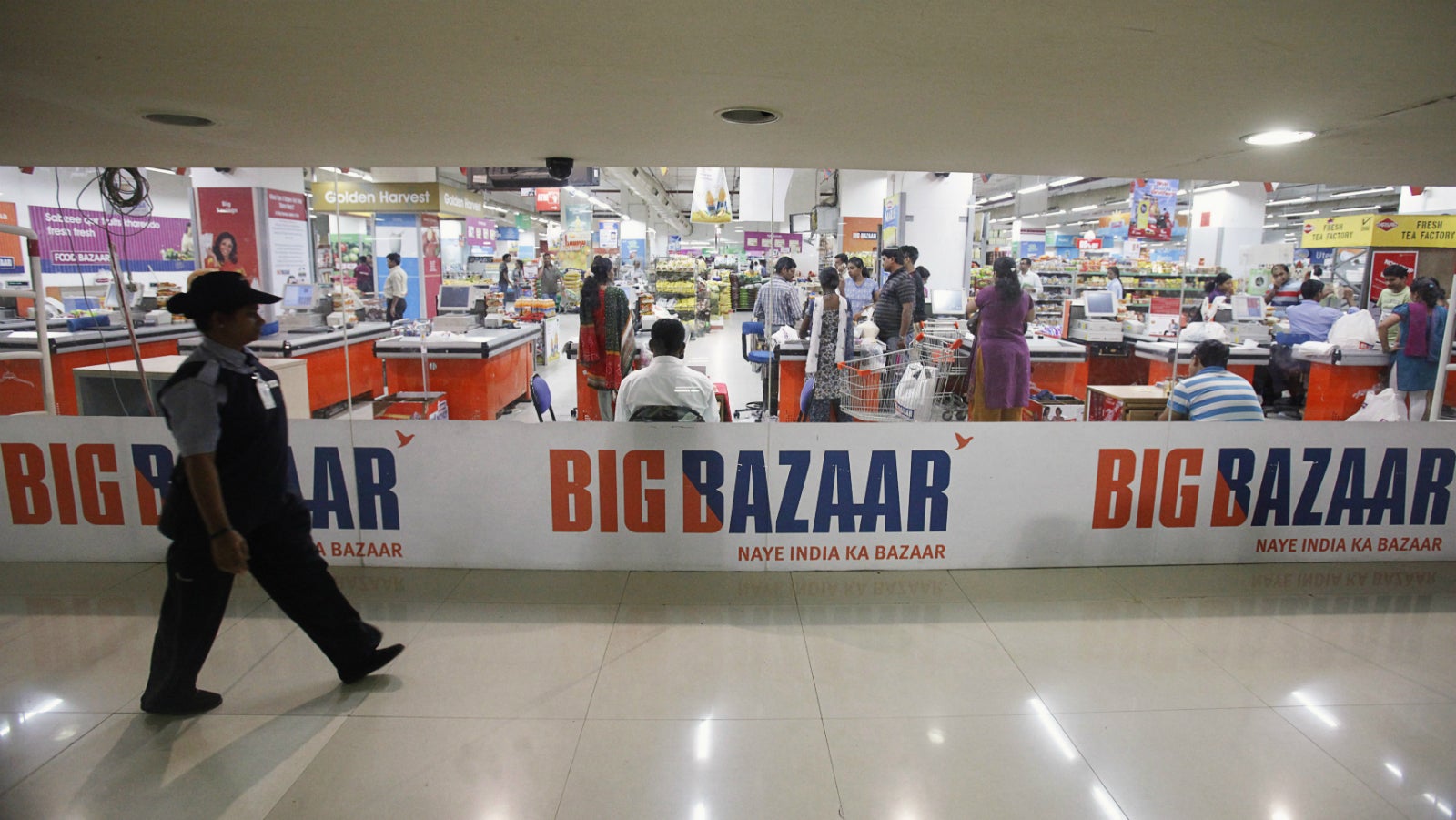The billionaire retailer who wants to rule every kitchen in India
Kishore Biyani wants to own your pantry and control your kitchen.


Kishore Biyani wants to own your pantry and control your kitchen.
The 55-year-old businessman who built the Future Group into one of India’s largest retailers now has grand ambitions to put together a big grocery business.
The lynchpin of Biyani’s plan would be a network of 40 food-processing units that will churn out everything from spices and flour to snacks and beverages. These products, along with a range of brands that the Future Group already hawks, will then be pushed through the massive nationwide distribution pipeline that Biyani has been steadily building.
It may seem like Biyani is trying to do too much, but his rationale is simple: ”Till you don’t own your supply chain and own brands, you cannot make money.”
By 2021, Biyani plans to more than triple the company’s turnover from Rs22,000 crore in 2015 to Rs75,000 crore. He expects biscuits and soaps alone to earn him a sizeable Rs20,000 crore by then. The food and consumer goods business currently generates Rs2,000 crore for the group.
Beyond retail
For the last two decades, much of Biyani’s retail success has revolved around selling brands produced by others. For instance, Big Bazaar, a widely recognized chain of over 200 hypermarkets retails everything from food and grocery to apparel and footwear. But profitability is restricted in the grocery business because margins are low.
With his own brands, Biyani looks to boost margins, improve revenues, and transition from being just a retailer. “We will be among the top three fast-moving consumer goods (FMCG) companies in the country by 2021,” Biyani said in March.
At the heart of the plan is Future Consumer Enterprise (FCE), the group’s FMCG arm. The Mumbai-based firm is in charge of setting up the 40 factories. The first of these is already operational in Tumkur in the southern state of Karnataka.
FCE is also helming the partnerships with local and international consumer goods companies to expand Future Group’s grocery portfolio. Currently, FCE sells 31 brands and 350 stock-keeping units (SKUs), but Biyani plans to take that number to 1,000 SKUs.
The entire range of grocery products—those produced in-house as well as through partnerships—will be sold not just at Future Group stores but also across other supermarket chains, including Tata’s Star Bazaar.
If that doesn’t sound disruptive enough, Biyani is also a staunch backer of Ramdev, the yoga guru and entrepreneur setting India’s consumer goods market alight over the last one year with his Patanjali brand. In 2015, Biyani welcomed the entire range of Patanjali products across his stores, making Future Group the first large retail chain to do so.
Stores and food
Biyani’s new ambition to move beyond retail will be based on the bedrock of his grocery store network. By 2021, Future Group looks to grow its chain of supermarkets to 4,000. Right now, it has over 600 supermarket stores, mostly in northern and southern India.
“We need a front end to sell whatever we make,” Biyani said.
In the last two years, Future Group has made some big moves to expand its footprint. In 2014, it acquired 140 stores of the Bengaluru-based grocery chain Nilgiris. Last year, it invested in Bharti Retail’s Easyday, another chain of over 330 neighbourhood supermarkets. And the third brand of supermarts under the Biyani stable is KB’s Fairprice.
Earlier in August, Future Group was reportedly in talks to buy More, a chain of 500 supermarkets owned by Mumbai-based Aditya Birla Retail (ABR) that is focused on western India.
But Biyani denied the move, stating that his company will focus on its existing brands. “We want to grow through our existing brands KB’s, Nilgiris, and Easy Day,” he said.
Selling grocery in India
But India is not an easy market for the grocery business. The market is dominated by small mom-and-pop shops that thrive in local neighbourhoods. Also, grocery retailing typically works on thin margins (between 8% and 10%); for big retailers, running big stores can translate to high costs.
Still, Biyani’s grand plan may be coming at the right time.
By 2020, retail trade through supermarket chains in India is expected to triple to $180 billion, according to estimates by the Boston Consulting Group and the Retailers Association of India.
On his part, Biyani—often likened to Walmart founder Sam Walton—finally has had some clarity after two decades in business. Calling this transition a “re-birth” of sorts, Biyani now wants to “look at ourselves as a consumer goods company, selling fashion, food, and other products, having various delivery formats to distribution.”
He has cast his net wide.